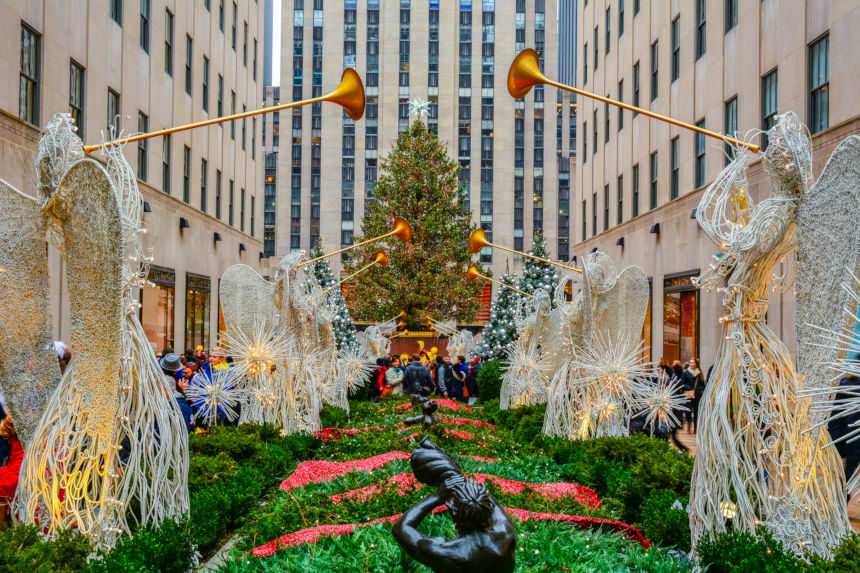Managing editor and logophile Andy Hollandbeck reveals the sometimes surprising roots of common English words and phrases. Remember: Etymology tells us where a word comes from, but not what it means today.
Every year in November, a gigantic fir tree is hauled to New York City’s Rockefeller Center to be decorated for Christmas. It’s usually a Norway spruce, and after it’s set into place, teams of decorators and electricians set about sprucing it up with lights and ornaments.
That’s two types of spruce — one a noun, a type of tree, and one a verb meaning “to make look neater.” So which came first, the tree or the act?
It’s a trick question: What came first was the country.
No, you didn’t forget a geography lesson: Spruce comes from a roundabout corruption of Prussia. At its largest, during the last third of the 19th century, the Kingdom of Prussia encompassed an area of Europe about equal to Great Britain along the southern coast of the Baltic Sea. After German reunification efforts and two world wars, Prussia officially ceased to exist in 1947.
But several centuries earlier, Prussia — then merely a duchy — was called Prusse in French. The French ruling class in England probably introduced the word to English speakers, who, by the end of the 14th century, were using both Pruce and Spruce as both a noun and an adjective. There are several simple and reasonable ways that S could have been grafted onto the beginning of the word, such as metanalysis (or rebracketing). If you compliment someone on their new, smart-looking jerkin, for example, there’s no aural difference between the answer “Thank you — it’s Pruce.” and “Thank you — it’s Spruce.”
Regardless of how the word was formed, spruce had become an English word that meant “from Prussia.” But back in those olden times, most English speakers weren’t too well-versed in geography (most of them couldn’t read, much less care, about European geography). They didn’t necessarily know whether the German-speaking merchants from northern Europe they were dealing with were technically Prussian (Spruce) or not, so the term was used more broadly than was strictly accurate to describe both the merchants and, more importantly, their wares.
One of the things these “Spruce” traders brought to England was a type of pine tree that grew straight and tall and was great for making ship masts. Thus, this type of tree became the Spruce tree. (Which means that the Rockefeller Center’s Norway spruce is, etymologically, a Norwegian from Prussia.)
The etymological development of the verb sense of “spruce (up)” is more theoretical than what I usually write about. What we do know is that before spruce was a verb, it was an adjective. We have written evidence from the early 17th century, for example, that mentions “the neatest and sprucest leather.”
Trees weren’t the only things these “Prussian” merchants brought to Great Britain. They also came with Spruce iron, Spruce canvas, and Spruce leather. The leather in particular was highly prized for making all sorts of things, including the aforementioned smart-looking jerkin (a type of sleeveless jacket). Spruce-leather products may have become so associated with looking good that the word spruce became synonymous with “neat, smart-looking.”
Once we had the adjective, the verb soon followed. If you took action to make something look sprucer — to zhuzh it up, in the modern parlance — you could spruce it up.
So to answer the (essentially rhetorical) question posed by this article’s title: With Prussia consigned to history books and the link between Prussian and spruce completely obliterated to the common English speaker, it’s a perfectly reasonable thing to spruce up a yard with a willow tree.
You can’t, however, willow up a yard with a spruce tree.
Featured image: Shutterstock
Become a Saturday Evening Post member and enjoy unlimited access. Subscribe now



